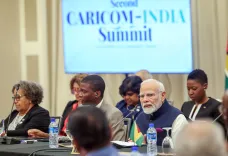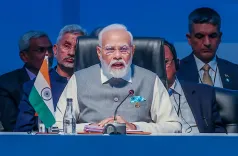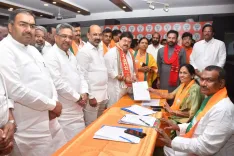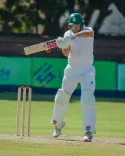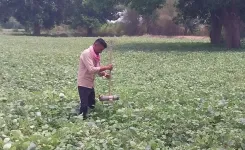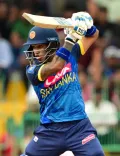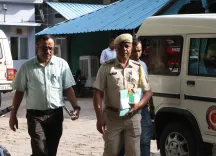Why Did Bangladesh ICT Issue Arrest Warrants for 26 Individuals in July Protest Murder Case?
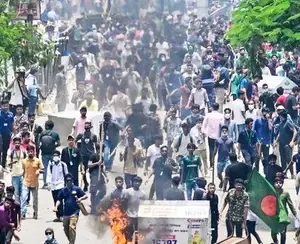
Synopsis
Key Takeaways
- Arrest warrants issued for 26 individuals in a significant legal development.
- Former Vice Chancellor of Begum Rokeya University implicated.
- Case linked to student protests demanding job quota reforms.
- Concerns raised regarding political motivations in the ongoing legal processes.
- Transparency and fairness in judicial proceedings are crucial for democracy.
Dhaka, June 30 (NationPress) The International Crimes Tribunal (ICT) of Bangladesh has taken significant action by issuing arrest warrants for 26 individuals, among them Hasibur Rashid, the former Vice Chancellor of Begum Rokeya University, related to a murder case stemming from protests in July of last year.
The tribunal, consisting of a three-member panel headed by Justice Md Nazrul Islam Chowdhury, made this ruling after recognizing the charges against 30 suspects linked to the murder of Abu Sayed, a student from Begum Rokeya University in Rangpur, as reported by local media.
Current reports indicate that four of the accused, among them the former proctor of the university, Shariful Islam, along with former assistant sub-inspector of police Amir Hossain, police constable Sujan Chandra Roy, and Bangladesh Chhatra League leader Imran Chowdhury, are presently in custody for their alleged roles in the incident.
On July 16, 2024, Abu Sayed became the first student fatally shot by police during a demonstration at Park Mor near Begum Rokeya University, where students were protesting for reforms in the government job quota system.
Sayed's brother, Ramzan Ali, lodged a complaint with the ICT's prosecution unit, implicating former Prime Minister Sheikh Hasina and 23 others for his brother's death.
During a press briefing on Thursday, prosecutor Mizanul Islam highlighted that the ICT investigation agency identified 30 individuals as having potential involvement in the case.
In related reports, it was noted that sub-inspector Bibhuti Bhushan Roy, who was overseeing the campus police camp at the time, filed a First Information Report (FIR) asserting that Sayed was not a victim of police fire.
The FIR claimed that the protesters had fired weapons and hurled bricks from various directions, with a student seen collapsing amid the chaos.
Moreover, the former sub-inspector alleged that a large group of unidentified individuals, including members of the Bangladesh Nationalist Party and Jamaat-e-Islami, were involved in the turmoil.
Experts believe this development reflects ongoing political vendettas pursued by the interim government led by Mohammad Yunus, especially given that multiple cases were initiated against Hasina, her allies, and staff on baseless grounds shortly after her removal in August 2024.
The abrupt departure of Hasina last August, following the violent student protests, is widely recognized as a significant blow to the democratic framework of the nation.



